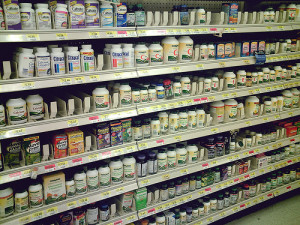Pre-workout supplements are a popular choice among weight lifters and among those who are trying to lose weight. The purpose of these supplements is to improve workouts and help attain the best results. There are two main kinds of pre-workout supplements: weight-loss supplements and muscle-building supplements.
The following are some of the benefits from using such supplements:
- Increased strength and endurance;
- Faster metabolic rate;
- Enhanced energy and focus;
- Overall better performance.
Before one decides to use any pre-workout supplements, pre-workout nutrition ought to be considered. Carbohydrates are essential as they are your body’s fuel source. It is recommended that you eat your carbs before your workout so that they can be utilized as fuel in your body. Protein is another must-have food.
Supplements for Weight Loss
Creatine for Weight Loss
Supplementing with creatine increases the body’s creatine stores which results in an increased level of phosphocreatine that in turn helps regenerate muscles’ energy source, ATP. According to a study conducted on 17 subjects, a dosage of 5g of creatine produced an increase in the total creatine content of the muscles. Recommended dosage is 3g per day.
Caffeine for Weight Loss
Caffeine is one of the most popular pre-workout supplements for weight loss. Caffeine can be obtained from coffee, tea, chocolate, or through energy drinks. This very popular supplement works by inhibiting the enzyme that blocks degradation of cAMP therefore allowing energy levels to remain high for extended periods of time. A study on the efficacy of caffeine in increased exercise performance showed increased performance after an intake of caffeine before workout. Typical dosage rages from 100-200 mg.
Glutamine:
As you work-out, the levels of glutamine in the body falls and using this as a pre-workout supplement can help delay fatigue during workout by producing more energy and reducing muscle fatigue.
Supplements for Muscle Building
Arginine:
This is a very popular pre-workout supplement for weight lifters because it allows more blood to flow to the muscles by dilating vessels and thereby allowing more nutrients to be absorbed. Results of a study on the effect arginine as a supplement 10 minutes before work-outs showed enhanced performance during workouts. Recommended dosage before a workout is 2-3g.
Citrulline Malate:
Supplementation with Citrulline Malate can increase the levels of arginine which is necessary after an intense workout. Breakdown of amino acids and increased levels of ammonia cause a reduction in arginine levels. Studies show that aerobic energy production is also promoted because of the muscle metabolism promoted by citrulline malate.
Tyrosine:
This supplement helps improve perceived level of fatigue and cognitive and physical performance during stressful conditions. It increases mental alertness and the ability to concentrate which can help one perform more strenuous workouts. Doses of 500 to 1000mg per day before workouts are recommended.
Whether or not to take pre-workout supplements will be totally up to you and will greatly depend on how you feel during your workout when you are taking these supplements.






